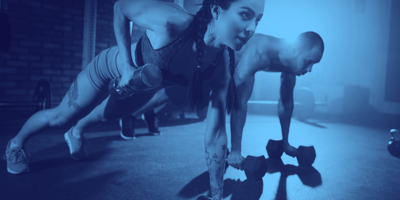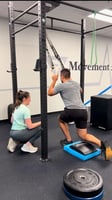ACL injuries are among the most challenging setbacks for athletes and active individuals. The...
ACL Treatment: When Keller Athletes Can Avoid Surgery
An ACL injury is often synonymous with surgery, but did you know that surgery isn’t always the only option? At Elevation Athletics Physical Therapy and Performance in Keller, TX, we specialize in helping athletes and active individuals explore non-surgical treatment plans for ACL injuries when appropriate. With advancements in rehabilitation techniques and personalized care, many people can regain strength, stability, and confidence in their knee without going under the knife.
Understanding ACL Injuries
The anterior cruciate ligament (ACL) is one of the key stabilizers of the knee. Injuries to the ACL often occur during sports that involve pivoting, jumping, or sudden stops, such as soccer, basketball, or tennis. A torn ACL can lead to instability, swelling, and pain, but not every tear requires surgery.
Factors That Influence the Need for Surgery:
- Severity of the Tear:
Partial tears may not require surgery, especially if the knee remains stable and functional with proper rehabilitation. - Activity Level:
Surgery is often recommended for athletes in high-impact sports, but recreational or low-impact athletes may not need surgical intervention. - Knee Stability:
If the knee remains stable and functional, non-surgical treatment may be a viable option. - Age and Goals:
Younger athletes may opt for surgery to return to competitive sports, while older or less active individuals may prefer conservative management.
How Physical Therapy Can Treat ACL Injuries
Non-surgical ACL treatment focuses on strengthening the muscles around the knee to compensate for the damaged ligament, improving overall stability and function. Physical therapy plays a crucial role in this process by addressing the specific challenges caused by the injury.

Key Components of Non-Surgical ACL Treatment:
- Strengthening the Knee and Surrounding Muscles:
Building strength in the quadriceps, hamstrings, and glutes helps stabilize the knee and reduce strain on the ACL. For example, exercises like hamstring curls, leg presses, and step-ups are commonly used to strengthen the lower body. - Improving Proprioception and Balance:
ACL injuries can disrupt your body’s sense of balance and coordination. Therapy includes balance exercises, such as single-leg stands or using a balance board, to retrain your body’s stability systems. - Restoring Range of Motion:
Swelling and stiffness often limit the knee’s ability to move freely after an ACL injury. Stretching and mobility exercises, such as heel slides or seated knee extensions, are essential for restoring full range of motion. - Functional Movement Training:
Therapy focuses on movements that mimic daily activities or sports-specific motions, such as pivoting or jumping, to ensure the knee is ready for real-world demands. - Education on Activity Modification:
For those choosing non-surgical treatment, understanding how to safely modify activities to protect the knee is critical. We provide guidance on avoiding high-risk movements while still staying active.
Can Surgery Really Be Avoided?
In many cases, yes. Non-surgical treatment can be highly effective for individuals who:
- Have a partial ACL tear or mild instability.
- Engage in low-impact activities or sports.
- Are willing to commit to a structured physical therapy program.
However, it’s essential to work closely with a physical therapist and physician to determine the best course of action.
When Surgery May Still Be Necessary:
- Severe or complete ACL tears with significant instability.
- Returning to high-impact or competitive sports.
- Failure to achieve stability and function through physical therapy.
The Elevation Athletics Approach to Non-Surgical ACL Treatment
At Elevation Athletics, we focus on providing individualized care tailored to your injury, goals, and lifestyle. Our experienced therapists use evidence-based techniques to help you regain strength and confidence in your knee while minimizing downtime.
What to Expect in Your Treatment Plan:
- Thorough Evaluation:
We assess your knee’s stability, range of motion, and overall function to create a personalized plan. - Customized Therapy Sessions:
Each session includes targeted exercises, manual therapy, and functional movement training designed to strengthen your knee and improve stability. - Ongoing Progress Monitoring:
We track your improvements over time, adjusting your treatment plan as needed to ensure you achieve the best possible outcome. - Education and Empowerment:
We’ll teach you how to protect your knee during activities, recognize signs of instability, and maintain your progress long-term.
Why Keller Athletes Trust Elevation Athletics for ACL Treatment
At Elevation Athletics Physical Therapy and Performance, we understand that no two ACL injuries are alike. Our commitment to personalized care and long-term success ensures that you receive the best possible treatment—whether you’re aiming to avoid surgery or recover after it.
Considering non-surgical ACL treatment? Contact Elevation Athletics Physical Therapy and Performance in Keller, TX, today to learn how we can help you return to the activities you love with confidence and strength.
%20(1).png?width=500&height=128&name=Elevation%20Atletics%20(3)%20(1).png)


